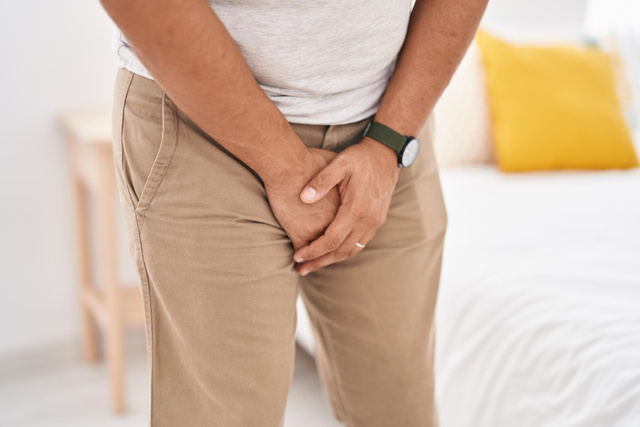Benign Prostatic Hyperplasia, commonly known as BPH, is a condition that affects many men as they age. It occurs when the prostate gland enlarges, causing various urinary symptoms. While these urinary issues are well-documented, what’s often unspoken is how BPH can impact a man’s sexual health. BPH, or Benign Prostatic Hyperplasia, is typically diagnosed through medical history, physical examination, and tests. During a medical evaluation, a healthcare provider will inquire about urinary symptoms and may perform a digital rectal exam (DRE) to assess the size and condition of the prostate gland.
Prostate-specific antigen (PSA) blood testing to rule out prostate cancer and urinalysis testing to look for other possible urinary disorders are two examples of diagnostic procedures. In some circumstances, imaging tests such as an ultrasound or cystoscopy may be suggested for a more thorough evaluation. Treatment choices are then based on the severity of the symptoms and how they affect the patient’s quality of life.
In this blog post, we will explore the connection between BPH and sexual health and provide insights on maintaining a satisfying sex life while managing this condition.
The Impact of BPH on Sexual Health:
BPH, characterized by the non-cancerous growth of the prostate gland, can significantly affect sexual health in various ways:
- Erectile Dysfunction (ED): Many men with BPH also experience erectile dysfunction. This can be due to the physical obstruction of the urethra by the enlarged prostate, as well as the psychological stress that often accompanies BPH diagnosis.
- Reduced Libido: BPH symptoms, such as frequent urination and discomfort, can decrease interest in sexual activity. Anxiety and depression related to the condition can further contribute to losing libido.
- Pain or Discomfort: Sexual intercourse can become painful or uncomfortable for men with BPH, particularly if the prostate is significantly enlarged. This can deter men from engaging in sexual activity.
- Medication Side Effects: Some medications used to treat BPH, such as alpha-blockers or 5-alpha-reductase inhibitors, can have side effects that impact sexual function. These side effects may include ejaculatory problems or reduced sexual desire.
Managing BPH-Related Sexual Health Issues:
The good news is that there are ways to manage BPH-related sexual health issues. Here are some strategies:
- Consult Your Doctor: If you’re experiencing sexual problems due to BPH, the first step is to consult with a healthcare professional. They can help identify the cause of the issue and recommend suitable treatment options.
- Medication Adjustments: Your doctor might adjust your BPH medication or recommend alternative treatments with fewer sexual side effects. It’s essential to communicate openly with your healthcare provider about any sexual health concerns.
- Lifestyle Changes: Maintaining a healthy lifestyle, including regular exercise and a balanced diet, can improve overall health and positively impact sexual function.
- Counseling and Support: BPH can take a toll on mental health, further exacerbating sexual health issues. Seeking counseling or support groups can provide valuable emotional support.
Benign Prostatic Hyperplasia may affect a man’s sexual health, but it’s essential to recognize that there are ways to address and manage these issues. Open discussion with your doctor, possible medication changes, and attention to general well-being can all assist in improving sexual function and guarantee a fulfilling sex life despite the difficulties BPH presents. Remember that you’re not on this trip alone; assistance is there to help you sort through these problems and keep up a fulfilling sex life.

